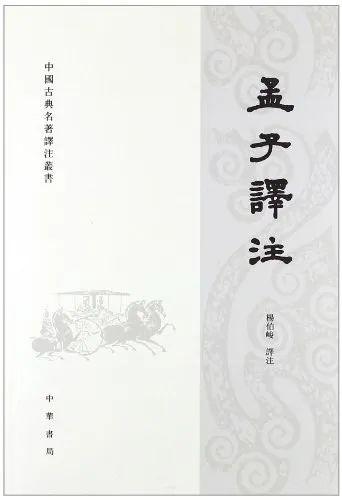加拿大口音跟美式英语的不同(加拿大英语和美式英语比较)
Do you see the river behind me? Sorry, it might be a little bit out of focus.,下面我们就来说一说关于加拿大口音跟美式英语的不同?我们一起去了解并探讨一下这个问题吧!

加拿大口音跟美式英语的不同
Do you see the river behind me? Sorry, it might be a little bit out of focus.
The other day a man was out in his boat doing some fishing, but it was really hot, eh, so he didn't stay out there for very long and I think he only caught one or two fish.
If you were paying close attention to those first few sentences I just said, you'll realize that I pronounced three words with a strong Canadian accent.
And I even threw in one word that is uniquely Canadian. If you've ever been curious about what Canadian English sounds like and what makes it a little bit different than the other kinds of English spoken around the world, stick around.
I'll explain all of that in this English lesson. (cheerful instrumental music)
Well hello, and welcome to this English lesson where I'm going to talk about Canadian English.
Before we get started, though, if this is your first time here, don't forget to click that red subscribe button and give me a thumbs up if this video helps you learn just a little bit more English.
So one of the most common questions that I get as an English teacher on YouTube is this, "What is the difference between American "and Canadian English?" Well, the first thing I wanna mention is this.
In terms of how the language sounds, they are very, very similar.
In fact, this is what I read on Wikipedia. Wikipedia says this, "In terms of how the languages sound,
"Canadian and American English are classified together "as North American English, emphasizing the fact
"that the vast majority of outsiders, "even other native English speakers cannot distinguish
"the typical accents of the two countries by sound alone." So what that means is that Canadian English and American English sound very similar.
I like to say we're very close cousins of each other.
There are a few words that we pronounce differently, and I will talk about them in a little bit.
But I think the major reason why this is true is because we live so close to each other and we share each other's culture.
Canadians watch a lot of American TV, and we watch a lot of American television. I would like to think that Americans do the same thing.
But in terms of how the languages sound, they sound very, very similar.
One of the ways that Canadian English does sound different than American English is in the way we say our O sounds in some of our words. At the beginning of the video,
I said a man was out in his boat. And if you were an American English speaker, those words would have sounded different to you. I can't pronounce them with an American accent.
All I know is how I say them. But if you ever meet a Canadian and you want to bug them a little bit about their language or joke around a bit, ask them to say, "The man was out and about in his boat."
And you will then hear how the O sound sounds in those words when a Canadian English speaker says them.
Another word that sounds a little bit unique when a Canadian English speaker says it is the word sorry.
When we pronounce sorry, it actually rhymes a little bit with the word sore. The other day I was walking and I twisted my ankle and now my ankle is sore.
So the word sore and the word sorry have the same O sound when we pronounce them in Canadian English. So as a Canadian, I do apologize a lot.
Canadians are known for apologizing. And I think the way we say the word sorry is the most accurate pronunciation.
I wish every other English speaker in the world pronounced it that way and said it more often. Canadian English speakers also tend to use the word eh.
And there's two ways that I use the word eh when I'm speaking English.
I used one example at the beginning of the video. I said the man was out in his boat fishing, but it was really hot, eh, so he didn't stay out for very long.
I added the word eh to that sentence as kind of a prompt to make sure that you were still listening.
Eh is a word that we sometimes add in the middle of a sentence and we're basically saying, "Hey, please keep paying attention to me
"while I talk to you." So you'll hear teachers say this a lot.
They'll often say, "You need to get to work, eh. "There's a lot of work to do today
"so it's very important that you get to work." The second way I use the word eh is when I make a statement and I put eh at the end with a question mark because I want the person I'm talking to to agree with me.
If I was eating pizza with you and I liked the pizza I might say, "This pizza is really good, eh?"
So I stated that the pizza was good, but I turned it into a question by adding eh, and a question where I'm expecting you to agree with me. So these videos are pretty good, eh?
Or this pizza is pretty good, eh? Or the view of the river is really nice today, eh?
So basically I'm adding eh because I want you to agree with me.
It's kind of a weird way that Canadians get people to agree with them.
So, American English and Canadian English sound very similar except for a few words that Canadians pronounce in their own unique way. But you might be wondering,
"Do you spell all your words the same? "When you are writing something, "do you spell your words the same as your American cousins?"
Well, for the most part yes, but there are a few words like honor and color where in American English they spell it with an OR on the end. And in Canadian English, we add OUR.
And there's also words like center and meter where our American cousins spell it with an ER at the end.
And we actually spell it with an RE. So, not a huge difference.
I think 99.9% of the words are spelled exactly the same way, but there are some small differences that you would need to learn if you were trying to perfect your Canadian English.
Now you might be wondering, "Do you use all the same words "as the Americans do when they speak English?"
Well, we do for the most part, but there are a few words that are uniquely Canadian.
We say toque when we talk about a winter hat. Our one-dollar coin is called a loonie.
We usually go to the washroom instead of the bathroom. When we order a coffee and we want two creams and two sugars in it, we order a double double, so double cream, double sugar.
When we get a case of beer that has 24 bottles in it, we call it a two-four.
The pole behind me we call a hydro pole. I think they would call it a utility pole in the United States. In Canada, we call electricity hydro.
So if the hydro goes out, it's the same as having a power outage.
And then we do pronounce one letter in the alphabet a little bit differently.
At the end of the alphabet, we have the letter zed. We do not say zee in Canadian English.
So if you were a little bit worried about whether you should be watching a Canadian teaching English when you are wanting to learn an American accent,
I would say don't worry. I, from personal experience, can tell you this.
I went to university in the United States. I had no problems functioning as a university student.
I did very well. I had no trouble understanding Americans and they had no trouble understanding me. Although they did laugh when I said something like,
"Don got up at the crack of dawn," because apparently the name Don and the time of day dawn are pronounced differently in American English.
And I still don't know how to pronounce them that way.
Anyways, Bob the Canadian here. Thank you for watching this little English lesson about Canadian English.
If this is your first time here, don't forget to click that red subscribe button and give me a thumbs up if this video helped you learn just a bit more English.
And if you have the time, why don't you stick around and watch another English lesson. (cheerful instrumental music)
,免责声明:本文仅代表文章作者的个人观点,与本站无关。其原创性、真实性以及文中陈述文字和内容未经本站证实,对本文以及其中全部或者部分内容文字的真实性、完整性和原创性本站不作任何保证或承诺,请读者仅作参考,并自行核实相关内容。文章投诉邮箱:anhduc.ph@yahoo.com






